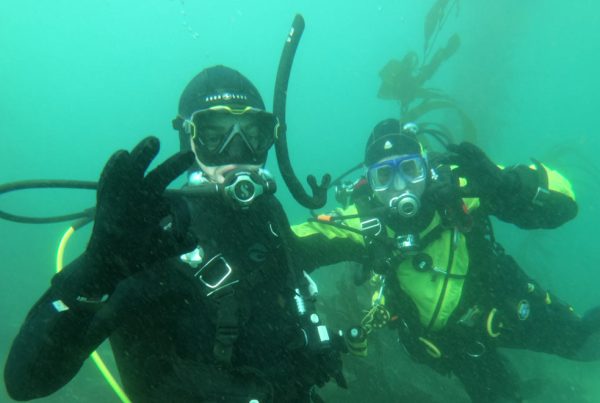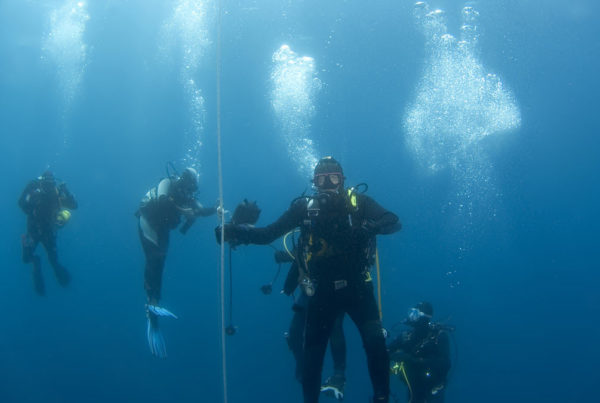Remember how your dive gear looked and felt when it was brand new? Your wetsuit was flexible and slipped on easily. Moving parts functioned smoothly without sticking. That new gear look and feel, and more importantly that new gear performance, can last longer with a bit of routine maintenance. Here are my top ten tips to keep your gear working like new.
10) Soak, rinse and thoroughly dry your gear at the end of every dive trip. I normally like to soak gear overnight, particularly regulators and cameras. Work camera fittings under fresh water to hasten the replacement of salt water trapped within the fittings with fresh.
9) Rinse the inside of some things, but not others. The inside of BCs should be thoroughly rinsed and dried. On most BCs the inflator hose assembly may be detached allowing easy rinsing and drying. Don’t get water inside your regulator. Make sure your dust cap has a good “O” ring and makes a good seal with your regulator before soaking. Don’t push the purge valve when rinsing regulators. Should you get fresh water inside your regulator, hook it up to a tank and blowing it out, then service promptly.
8) Take apart fittings that hold water. Water trapped in spaces between metal parts will cause corrosion over time. Where possible, take gear apart to allow the fittings to dry. This is particularly true of quick disconnect fittings on power inflators and regulators. Shake or blow water out of confined spaces in regulators. Store your regulator with the dust cap off to allow any water inside to evaporate.
7) Never allow your gear to dry when wet with salt water. Salt water is very corrosive. Concentrated salt water is much worse. There is generally no need to rinse your gear each day of a multiday dive trip, although if facilities exist it is best to do so. If you have a break in diving, don’t let your salty gear dry out. If you cannot rinse with fresh water, try rewetting it in salt water or at least cover it with a wet towel.
6) Store fins so the straps are not under stress. Rubber and plastic under stress will crack and break much faster. Release this stress by popping the buckle to an open (adjustable) position. If the strap cannot be easily freed from the buckle, extend the strap as far as possible such a large piece of strap will be left intact should the end break off.
5) Keep your gear out of the sun and heat. Sunlight initiates chemical reactions in plastics, rubber and silicon causing it to harden, become brittle, crack and fail. If there is no shady spot on your boat, store it in your dive bag or under a towel. Don’t store your gear in an area that gets hot, and never leave your gear in a hot car.
4) Apply chemical protection to rubber fins and hoses. Products like silicon spray reduce the effects of ozone, sun exposure and age on your gear and keeps it flexible and looking like new. Consult your manufactures manuals to see which products are compatible with your gear.
3) Get your gear serviced according to manufacturer’s suggestions. This is normally yearly for regulators. Remember to have tanks visually inspected annually and keep the hydro stamp current.
2) Let the professionals repair your gear. This tip does not only apply to regulators and BCs. It is too easy to apply too much glue when repairing your wetsuit. This causes the overall suit to be less flexible, concentrating stress in specific points, and possibly turning a small hole into a large rip.
1) Completely assemble and inspect your gear before each trip. This allows you to find what needs replacing before it interferes with your dive. How long before? Depends on where you dive. If there is a dive shop at your water entry point, you can rent or purchase what you need on the spot. If your dive site is a long drive or plane flight from the nearest shop, you will need to examine your gear well in advance of your dive and allow sufficient time to repair or replace what is needed.
Proper maintenance will assure that your gear not only looks good but also performs well. This is truly a case where a little bit of prevention is worth a whole lot of cure.










